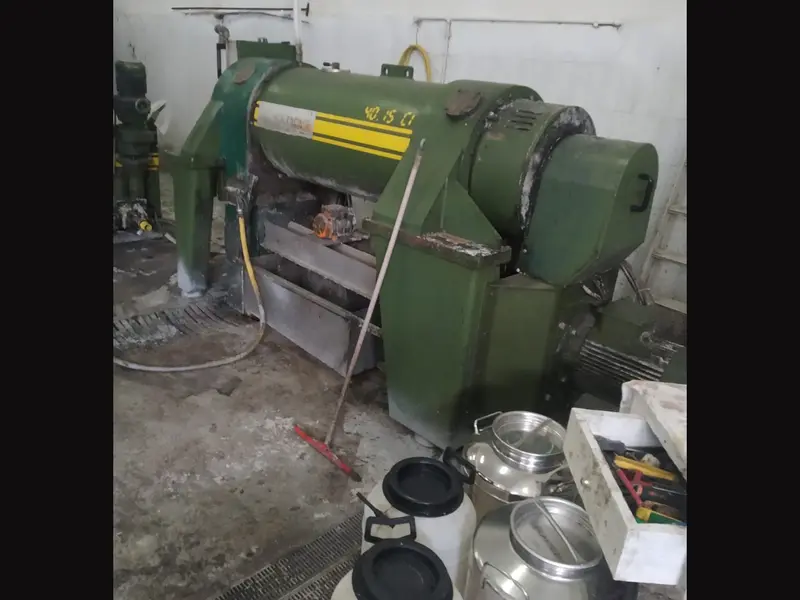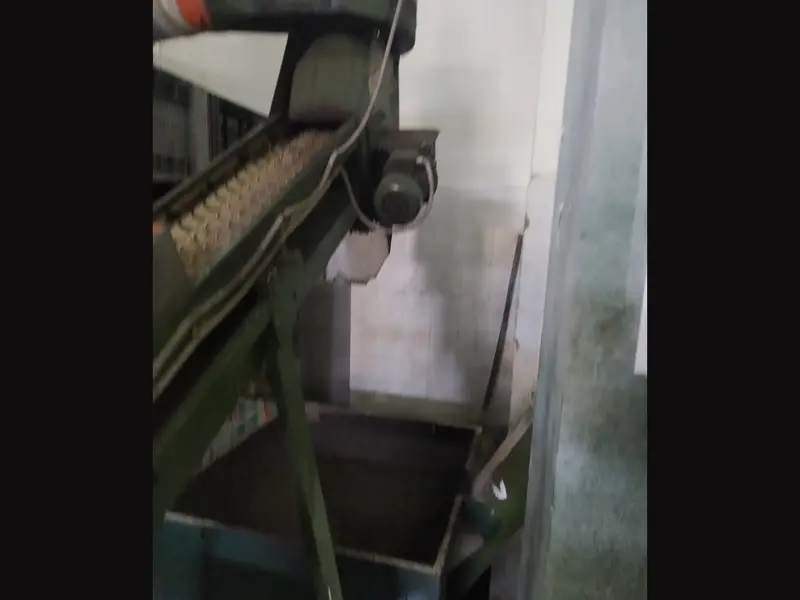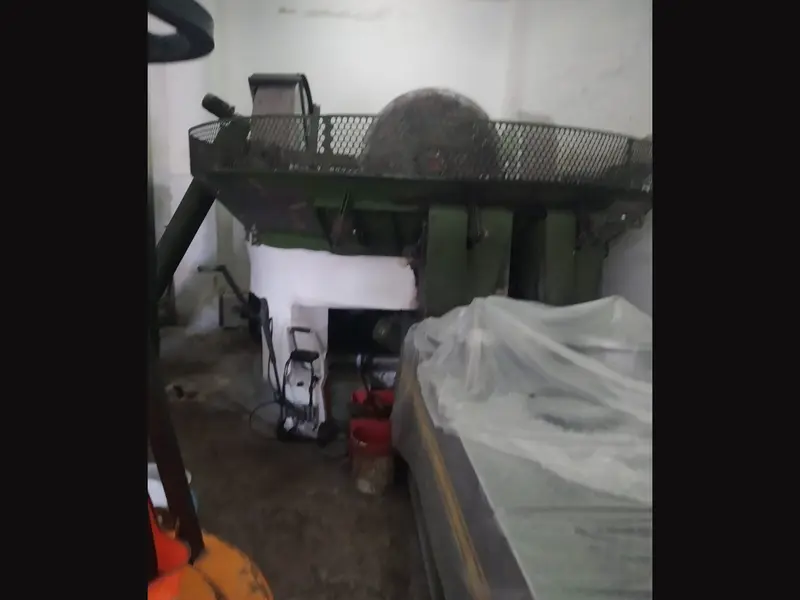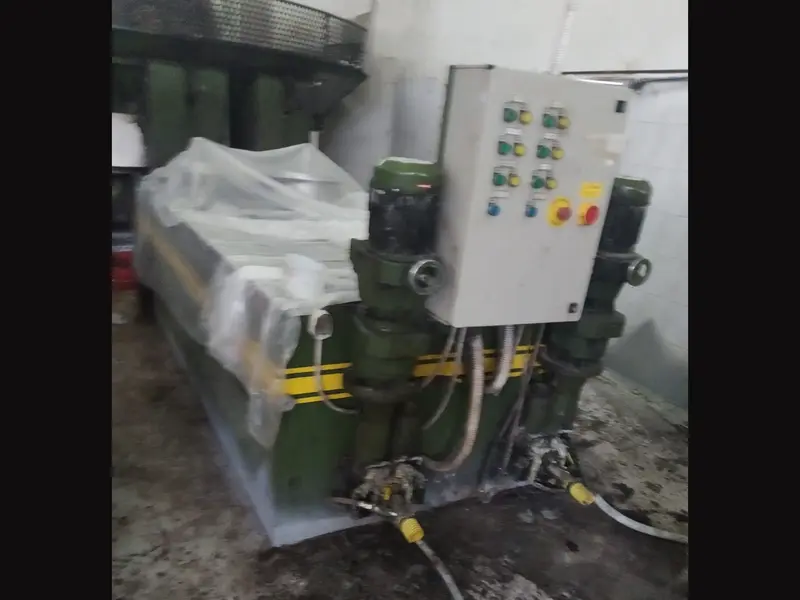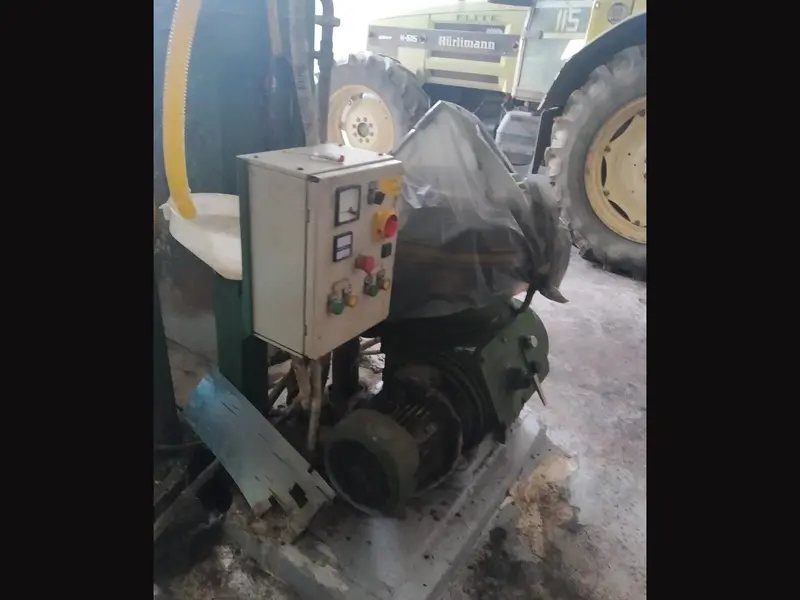Description
Used olive oil processing line BARRACANE 2500 tons/hour
Technical configuration of the system
The used olive oil processing line BARRACANE 2500 tons/hour delivers a complete solution for olive oil extraction. It processes up to 2.5 tons of olives per hour and meets industrial requirements for medium-sized olive mills. The line covers every stage of processing, including reception, washing, crushing, malaxation, centrifugation, and final separation. Operators can run this system continuously while maintaining high throughput and product consistency. Furthermore, the system’s layout facilitates quick integration into existing facilities.
Loading and washing section
A belt conveyor transports the olives to a washing unit, which removes leaves, dirt, and solid debris. Next, a second elevator lifts the cleaned olives and feeds them directly into the granite stone mill. This configuration allows the used olive oil processing line BARRACANE 2500 tons/hour to maintain an uninterrupted product flow, reducing manual handling and optimizing process timing. As a result, the system improves overall plant efficiency. Additionally, the automation of early-stage processing limits human error and contamination risks.
Crushing system with granite stone mill
The line includes a four-wheel granite stone mill, installed on a 300 mm thick base and enclosed in a stainless steel ring. This traditional crushing system applies slow and uniform mechanical pressure to break down the fruit. The granite wheels crush the olives gently, preserving the aromatic compounds and minimizing oxidation. Moreover, the granite base stabilizes the temperature, which protects oil quality throughout the milling phase. Therefore, this system suits producers who aim to achieve premium oil quality and maintain full control over the extraction profile. In comparison to metallic crushers, the stone mill offers greater control of the paste texture.
Malaxation system
The malaxation unit consists of four stainless steel tanks, each equipped with a gear-driven paste pump. These tanks mix the olive paste uniformly under controlled temperature. The gear pump transfers the paste directly to the decanter without interruption. Consequently, the system maintains consistency throughout the process. Operators can manage mixing duration and temperature with precision, which improves oil separation in the following stage. In addition, the system limits temperature fluctuations, thus protecting thermosensitive compounds. The used olive oil processing line BARRACANE 2500 tons/hour ensures thermal stability and uniform paste texture across all batches.
Decanter and final separation
A Barracane model 4015 decanter carries out the primary separation phase. This machine receives the paste through a feeding pump and filters it using a vibrating screen before centrifugation. Then, the decanter separates the oil, water, and pomace with high efficiency. After this stage, an Alfa Laval separator (2000 liters) performs the final clarification. It removes residual moisture and particles, producing a clean, ready-to-store oil. As such, the system guarantees output that meets commercial-grade purity. Moreover, operators can fine-tune parameters to match different olive varieties.
Electrical control and year of construction
A centralized electrical panel governs the entire system. It automates control over motors, pumps, and temperature systems. In 2000, the manufacturer built the used olive oil processing line BARRACANE 2500 tons/hour. Since then, maintenance teams have kept it in working order. For example, one may integrate sensors or PLC interfaces without modifying core equipment. Thus, the line provides a reliable base for further technological enhancement.
Technical overview
The used olive oil processing line BARRACANE 2500 tons/hour provides a reliable and technically complete solution for continuous olive oil production. It combines traditional milling techniques with mechanical automation, giving operators full control over each stage. In summary, this system fits the operational needs of mills that require durability, high-quality output, and structured process control. Overall, the plant supports consistent performance while allowing flexibility for process customization. Finally, it balances heritage methods with scalable industrial capability.

